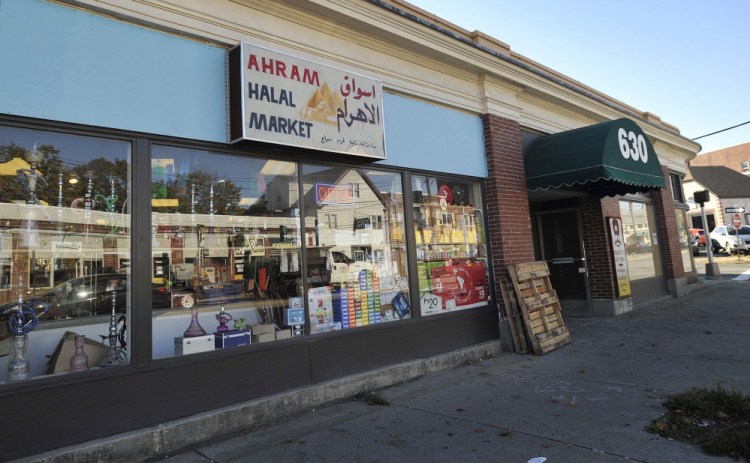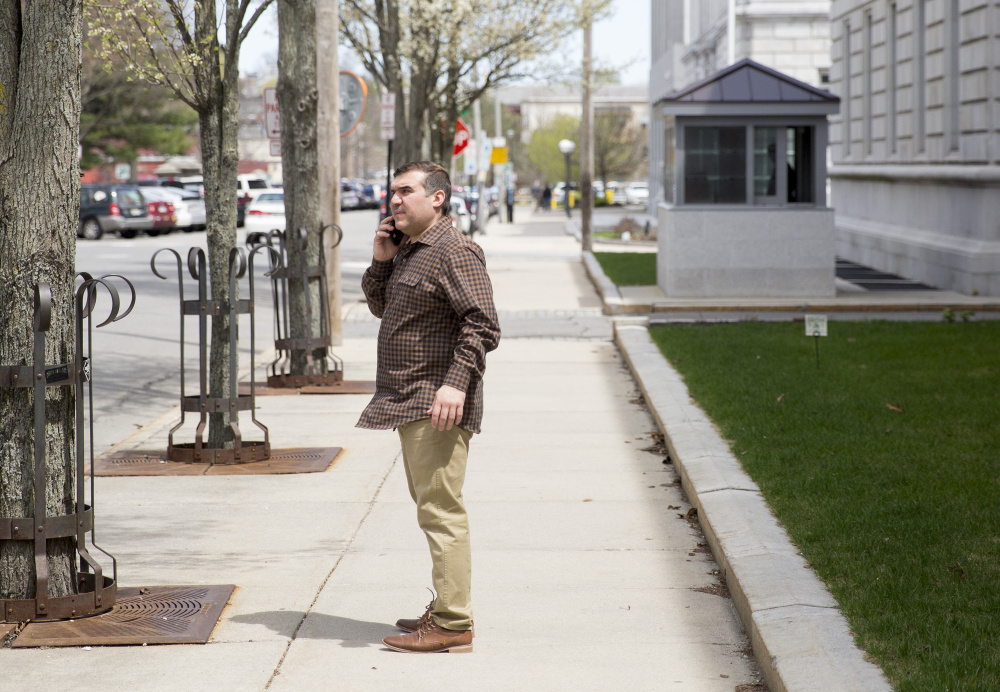The former owner and operator of the Ahram Halal Market in Portland is scheduled to plead guilty Tuesday to charges he conspired with his brother to defraud the U.S. government out of tens of thousands of dollars that were intended to benefit low-income families, women and children.
Ali Ratib Daham, 40, of Westbrook reached an agreement this month with the U.S. Attorney’s Office that has him changing his not-guilty plea to guilty on three counts: conspiracy to defraud the United States, money laundering and theft of government funds.
Daham was indicted on 25 related counts in April, but the federal government has agreed to dismiss 22 of the counts, his attorney said. Daham still could face a maximum prison sentence of 20 years, and have to pay as much as $1 million in fines and restitution of up to $1.5 million, federal court records indicate.
The U.S. Attorney’s Office declined to comment on the agreement until after Daham has appeared in court, but Daham’s attorney, Walt McKee of Augusta, confirmed Monday that his client is scheduled to file a guilty plea in U.S. District Court in Portland on Tuesday afternoon.
“We have reached an agreement with the government,” McKee said.
McKee said the real battle will come at Daham’s sentencing hearing next spring, when McKee will argue for a lighter sentence and lower restitution.
“My client does not have the resources” to pay the maximum restitution amount, McKee said. He said that Daham, a native of Iraq, is a naturalized U.S. citizen.
According to the plea agreement filed with the court Nov. 2, Daham is facing up to 20 years in prison for money laundering, up to 10 years for theft and up to five years in prison for conspiracy to defraud.
In April, Daham and his brother, 21-year-old Abdulkareem Daham, also of Westbrook, were named in a federal indictment alleging they conspired to defraud the government. The indictment alleges that the conspiracy went on from July 2011 through April 2016 at the market at 630 Forest Ave.
The indictment alleges that the Dahams transferred $3.5 million in Supplemental Nutrition Assistance Program, or SNAP funds, into a checking account. The account included a mixture of legitimate transactions and “proceeds from fraudulent SNAP transactions.”
The indictment also says that about $683,986 in Special Supplemental Nutrition Program for Women, Infants or Children – also known as WIC funds – were transferred into Ali Daham’s checking account and included a mixture of legitimate as well as fraudulent transactions.
SNAP, a federal program formerly known as food stamps, is designed to raise the level of nutrition among low-income households. WIC is a federal program that provides supplemental food, health care referrals and nutrition for certain low-income women, and to infants and children as old as 5 who are determined to be nutritionally at risk.
“It was further part of the conspiracy that the defendants used some of the SNAP and WIC receipts from fraudulent transactions to purchase food inventory, to pay for the store’s operating expenses and for their personal use,” the indictment says.
While Ali Daham was able to reach an agreement with federal prosecutors, his brother’s case is still pending in federal court.
Under their business arrangement, Ali Daham ran the market, while his brother worked as a cashier.
Peter Rodway, the attorney for Abdulkareem Daham, said in an email Monday that his client’s case is on the trial list for Jan. 8. Rodway said that his client “is charged only with a single count of conspiracy to defraud the U.S. government.”
After a federal investigation into the store’s operations became public last fall, Portland police said someone used a baseball bat to smash six storefront windows at the market on Christmas Eve. Following the vandalism, a national advocacy group called on police to investigate whether anti-Muslim bias motivated the destruction. Halal means food that is prepared under Islamic guidelines.
According to the federal indictment, Ahram Halal Market opened for business in June 2011. Ali Daham became the manager and sole owner of the market.
The market’s inventory included breads, fruits, vegetables, meats, dairy products and canned goods. The market also sold phone cards, over-the-counter medications, household items and hookah products.
Authorities became interested in the market after they discovered that the store, which has one cash register, was processing nearly the same amount of SNAP transactions as the much larger Hannaford supermarket on Forest Avenue.
The case was investigated by the FBI, the U.S. Department of Agriculture’s Office of the Inspector General, the Internal Revenue Service’s Criminal Investigation Unit, and the Recovery Unit of the Maine Department of Health and Human Services.
Dennis Hoey can be contacted at 791-6365 or at:
dhoey@pressherald.com
PressHerald.com disables reader comments on certain news stories, including those dealing with sexual assaults and other violent crimes, personal tragedy, racism and other forms of discrimination.
Comments are not available on this story.
Send questions/comments to the editors.




